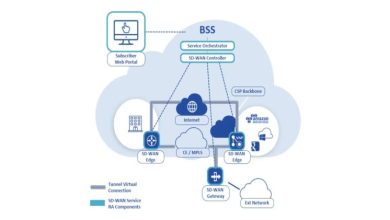Mastering the Art of Applied AI Data Science: Bridging Theory and Practice

In the dynamic landscape of data science, the demand for professionals who can seamlessly apply theoretical knowledge to real-world scenarios is ever-growing. This comprehensive guide navigates the realm of Applied AI Data Science, delving into the significance of bridging theory and practice in this field. Throughout the exploration, we’ll spotlight the Applied AI Data Science course at Brown University and draw comparisons to highlight its unique features.
Unpacking the Essence of Applied AI Data Science
1. Theoretical Foundations and Practical Applications:
- Insight: Applied AI Data Science involves not only understanding theoretical concepts but also effectively applying them to solve complex problems.
- Example: The application of machine learning algorithms in predicting disease outbreaks based on historical health data.
2. Holistic Skill Set:
- Insight: Professionals in this field need a comprehensive skill set that includes statistical knowledge, programming skills, and the ability to interpret results in a business context.
- Example: Analyzing customer data to optimize marketing strategies, combining statistical models and practical insights.
Emergence of Applied AI Data Science
1. Industry Relevance:
- Insight: The relevance of Applied AI Data Science lies in its direct applicability to industry challenges, leading to actionable insights and informed decision-making.
- Example: Financial institutions utilizing predictive analytics to detect fraudulent transactions in real-time.
2. Brown University’ Applied AI Data Science Course:
- Focus: The Brown University course combines theoretical foundations with hands-on projects, providing students with a holistic understanding of applied AI data science.
- Advantage: The course emphasizes practical applications, preparing students for real-world scenarios.
Key Components of Brown University Applied AI Data Science Course
1. Theory into Practice:
- Focus: The course ensures students can translate theoretical concepts into practical solutions.
- Benefit: Graduates are equipped to apply AI and data science techniques effectively in their professional roles.
2. Real-world Projects:
- Focus: Brown University integrates real-world projects, offering students hands-on experience in solving industry-specific challenges.
- Benefit: Students gain practical exposure, enhancing their ability to tackle complex problems in various domains.
3. Interdisciplinary Approach:
- Focus: The course takes an interdisciplinary approach, combining AI and data science with business applications.
- Benefit: Graduates possess a unique skill set, enabling them to bridge the gap between technical insights and business strategies.
Key Considerations for Applied AI Data Science Course Participants
1. Practical Skill Development:
- Consideration: Assessing the program’s focus on developing practical skills alongside theoretical knowledge.
- Importance: Practical skills are crucial for professionals to navigate the complexities of real-world data scenarios.
2. Industry Collaboration:
- Consideration: Evaluating opportunities for industry collaboration, such as internships or collaborative projects.
- Importance: Collaboration provides students with exposure to real industry challenges and enhances their employability.
3. Faculty Expertise:
- Consideration: Assessing the expertise of faculty members, particularly their experience in applying AI and data science concepts in industry.
- Importance: Faculty with practical experience can provide valuable insights and mentorship.
The Dynamics of Applied AI Data Science
1. Business Impact:
- Insight: Applied AI Data Science directly contributes to business success by generating actionable insights and facilitating data-driven decision-making.
- Example: Retailers using recommendation algorithms to enhance customer experience and drive sales.
2. Innovation Catalyst:
- Insight: The application of AI and data science fuels innovation, enabling organizations to stay ahead of the curve in a competitive landscape.
- Example: Healthcare institutions leveraging predictive analytics to personalize treatment plans and improve patient outcomes.
Industry Impact: How Applied AI Data Science Drives Success
1. Data-driven Decision-making:
- Insight: Applied AI Data Science empowers organizations to make informed decisions based on data rather than intuition.
- Example: E-commerce platforms optimizing pricing strategies through predictive analytics.
2. Scalable Solutions:
- Insight: The practical application of AI and data science allows for scalable solutions that can address complex challenges across various industries.
- Example: Autonomous vehicles using machine learning algorithms for real-time decision-making on the road.
Brown University Applied AI Data Science Course in Focus
The Applied AI Data Science course at Brown University stands out for its emphasis on translating theory into practice. By combining real-world projects and an interdisciplinary approach, the course ensures that graduates are not only well-versed in the theoretical foundations of AI and data science but also possess the practical skills needed to excel in their careers.
In Conclusion: Paving the Way to Success in Applied AI Data Science
Mastering the art of Applied AI Data Science involves navigating the delicate balance between theory and practice. As industries increasingly rely on data for strategic decision-making, professionals equipped with both theoretical knowledge and practical skills become invaluable assets. The Brown University Applied AI Data Science course emerges as a beacon, preparing individuals to unlock the full potential of AI in solving real-world challenges.



